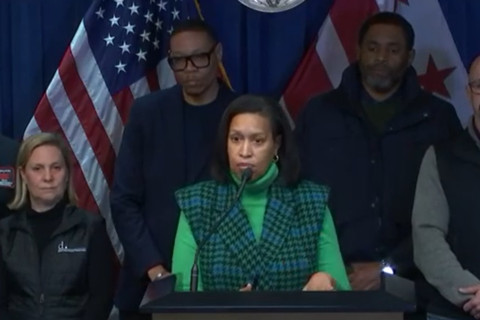WASHINGTON — A proposal to expand the District of Columbia’s paid family leave benefits would make the program the most generous in the nation.
The proposal would make every worker in D.C., or any D.C. resident working outside the city, eligible for up to 16 weeks of paid time off for “qualifying events” such as bonding with newborns and adopted children, or helping a family member recover from illness.
The government-run plan would be financed by the city’s businesses.
“The employers will pay somewhere between .25 percent and 1 percent of their payroll tax, depending on the size of their company, etc., etc. So, it’s going to take some calculation and some time and some regulation to get this together,” says the bill’s sponsor, At-Large Councilman David Grosso.
“I think it’s going to hurt business in Washington,” says D.C. Chamber of Commerce President Harry Wingo. “The Chamber supports employees being able to support their families, but this goes too far.”
Wingo says 16 weeks is too long, and employees should pay at least a percentage of the cost of the program.
“The pool of contribution is unfairly on the backs of D.C. businesses only,” Wingo says, noting that it would be unprecedented for D.C. businesses to fund benefits for city residents working in Maryland and Virginia.
“We also have to consider what Maryland and Virginia are doing, because this doesn’t happen in a vacuum,” Wingo says.
In a letter to Grosso, Wingo writes that the proposal would “make the District of Columbia dangerously uncompetitive at a time when [it] is trying to compete for every job it can get.”
Grosso believes his proposal will make city businesses more competitive and better able to retain quality staff.
“If we were to offer this as a benefit in the District of Columbia in the future, what that employer will get is a much more loyal employee who’s going to come back satisfied after taking care of their family and engaged and ready to work hard,” Grosso contends.
Seven of the D.C. Council’s 13 members have co-sponsored Grosso’s bill.
“My hope it will be passed sometime early next year,” Grosso says. “And then move through the setup of the regulations, and ultimately get this service out there so we have the real strong support for families in the city that we need.”








